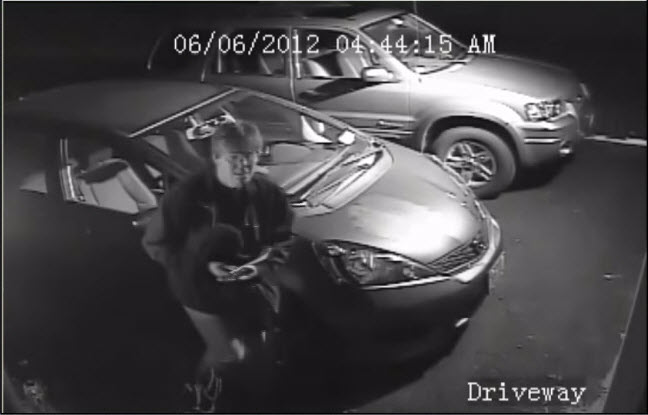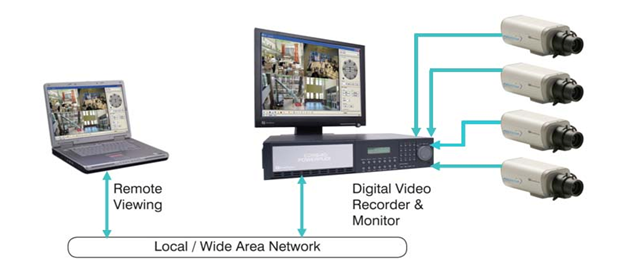Below you’ll find our most commonly asked questions. If you have other inquiries, please feel free to call or email any time!
-
How quickly can you install an alarm?
It really depends on the season. Sometimes we’re booked out for two weeks, other times, we can book you in the day after you contact us. If your job is urgent, let us know and we’ll try and squeeze you in as soon as we can.
A typical alarm takes around 4-6 hours to install.
-
I’m building a new home, at what stage can I have my alarm installed?
We usually install your alarm system once the builder hands over the home to you. We will run any cables through the roof so you won’t get any unsightly wires.
The exception of this rule is when you want a really comprehensive / custom alarm system for a double / triple storey home. If you’re in this scenario, it is best to engage us as before the plaster goes up so we can organise all the wiring. However, if you’re in this boat and you’re happy with a standard wireless alarm system like Alarm Pack 3, then we can install this once your home is complete.
-
Will your packages do? or do I need more?
It really depends on what you’re trying to do.
If you’re concerned about burglars marching around your premises while you’re not around, then the pre-designed Alarm packages will suffice for either a home or business. The detectors will usually go into the common areas of the premises – these are the areas a burglar would usually go to – to look for valuables. Feel free to add more detectors if your location is large.
If you are concerned that an intruder would come into your premises without walking into one of the common areas served by the detectors, then we could implement reed switches on doors and windows so that if a window or door were opened while the alarm is armed, then it would trigger the alarm.
-
What is the difference between a wired and wireless alarm system?
In a wired system, the detectors communicated with the control panel via wires. The wireless system’s detectors communicates with the control panel wirelessly.
For most single storey homes, we recommend wired systems as we can lay the wires in the roof space of the house.
We recommend wireless alarms for double storey homes or homes where getting the wiring around is quite difficult, especially if your home is completely built.
The wireless system is extremely reliable and the batteries for each detector has been known to last up to 5 years of everyday use. They can also be a significant distance away from the control panel – great if your garage is separate to the house.
-
What is an alarm zone?
A zone in alarm terminology is basically a space for a sensor. An alarm with 8 zones can handle up to 8 detectors – whether they are PIRs or reed switches or smoke detectors. The sensors are assigned to zones and when a sensor is trigger the system informs you which zone a sensor has been triggered. An alarm with 16 zones can handle up to 16 sensors.
Our home alarm systems give you the option to program zones so that sensors assigned to them cause the system to respond differently when they are triggered. All the alarms we offer can handle “Stay at home” mode and “Away mode”. This allows you to have certain areas of the home armed while you are at home. The technician will organise this for you on the day of the install.
-
What is a PIR?
A passive infrared sensor (PIR sensor) is an electronic sensor that measures infrared (IR) light radiating from objects in its field of view. A PIR-based motion detector is used to sense movement of people, animals, or other objects. They are commonly used in burglar alarms and automatically-activated lighting systems.
-
How long does the alarm backup battery last?
We find that in general, the alarm backup battery will last around 5 years without needing replacement. The alarm will let you know when you need to replace this by beeping.
Give us a call when you need replacement and we’ll be sure to help you. A battery service is usually a flat 200 fee.
-
How do I get notified my alarm has gone off?
Your alarm when triggered will make a deafening sound for around 10 minutes.
Most popular option with the Bosch system is notification via the Bosch app – this means the alarm notifies you via the app when triggered. This option requires a cable to be connected from the Alarm Panel to the modem.
You may choose to call your neighbour or family / friends to check up on your property.
If you choose to add Back to base monitoring, then an alarm monitoring centre will call your mobiles to let you know. They may then send out a security car to check up on the property for a fee.
-
Can I customise my alarm system to fit my home or business needs?
- Absolutely! We offer flexible options to customize alarm systems according to your specific requirements, ensuring you get the right level of security and functionality for your property.
-
Which cameras have night vision?
All of the cameras we supply have infra red – night vision. When it gets dark, the camera displays black and white – its the way cameras deal with low light situations.

Sample of night vision for 700TVL system.
-
How long does it take to install a CCTV system?
It takes between 4 hours to 1.5 days to install depending on how many cameras you’ve ordered as well as the size of your building.
A typical 4 camera system for a single storey should take around 4-6 hours. It should take roughly the same amount of time for a standard office.
-
How does a CCTV camera system work?

Basically the cameras send the information to a DVR (analog) or NVR (digital). The DVR or NVR records the information onto the hard-drive. It will also show the captured information on a monitor as well as stream it across the internet to your mobile phone, laptop or tablet.
Sam had just installed CCTV at his shop. One day, he noticed a group of teenagers loitering outside his shop. He quickly accessed the live video feed on his phone and watched as the group attempted to break into his shop. He was able to call the police and provide them with a description of the suspects, which led to their arrest. This is how CCTV works.
-
What Warranties do you have on your products?
All Bosch alarms come with a 24 month parts warranty and 12 months labour.
All CCTV systems we use come with a 24 months warranty for parts & labour.
-
What payment options are available?
Cash, bank deposit, EFTPOS and cheque are all OK.
Credit cards – Mastercard and Visa are OK, but there is a 1.5% surcharge for this method of payment.
This is expected to be payable on completion of the job or other terms as discussed with our team.
-
Do all your prices include GST and Labour?
Yes.
-
What is the difference between an analog & digital camera?
Analog security camera systems are the defacto standard in video surveillance. They are simple to configure and affordable. While the picture quality in analog systems is still very good and used in many commercial security applications, due to its technical limitations, they are limited to a maximum of D1 and 960H resolutions.
Digital systems typically comprise of IP (or network) cameras connected to a Network Video Recorder (NVR). As digital systems provide complete flexibility and extremely detailed footage (HD quality), they are usually slightly more expensive than analog systems.
There are some hybrid systems (e.g. HD-SDI, HDCVI) which delivers HD video over coaxial cables which means it could work over any existing camera cabling. This would allow you to upgrade an existing camera system to HD quality without having to rewire the premises. Ask us for this if you’ve already got coaxial cables and want to upgrade to a higher resolution system.
-
Are your cameras for inside or outside?
We have both indoor and outdoor cameras available. Most people want outdoor cameras to keep an eye around the premises, but sometimes, you may want to keep an eye on the inside of your home.
We also have Hidden Surveillance / Spy Cameras designed for indoors which allows you to keep an eye on the inside of your premises discreetly while you’re away.
-
How can I choose the best CCTV system for my home or business?
Choosing the best CCTV system for your home or business can be overwhelming, with so many different types and models available. One way to narrow down your options is by considering your specific needs and requirements. For instance, if you need to monitor a large area, you may need a system with more cameras and a higher resolution.
-
What are the benefits of having CCTV installed at home?
Having CCTV installed at home can provide you with peace of mind and a sense of security, knowing that you can monitor any suspicious activity in and around your property. For instance, it can help you keep an eye on your children or pets when you’re away or detect any unwanted intruders.
Rachel had installed CCTV at her home after a string of burglaries in her neighborhood. One day, she received a notification on her phone that the CCTV had detected motion in her backyard. She watched the live feed and saw a stranger trying to open her back door. She quickly called the police, who arrived and arrested the suspect. This is one of the many benefits of having CCTV installed at home.
-
How many cameras do I need for my CCTV system?
The number of cameras you need for your CCTV system depends on several factors, such as the size of the area you want to monitor and the level of security you require. For example, if you have a large property, you may need more cameras to cover all the entry points and blind spots.
John wanted to install CCTV at his factory. He consulted with a professional who recommended several cameras based on the layout of his factory. He ended up installing 10 cameras to cover all the entry points and blind spots. This is how to determine the number of cameras needed for a CCTV system.
-
How do I access the footage captured by my CCTV system?
Accessing the footage captured by your CCTV system can be done through a variety of methods, such as connecting to a monitor or accessing the footage remotely via a smartphone app or computer. For example, if you’re away from home, you can access the footage from your phone to check in on your property.
Jenny was on vacation when she received a notification on her phone that her CCTV had detected motion in her home. She quickly accessed the footage on her phone and saw that it was just her cat. This is how to access CCTV footage remotely.
-
Can I use CCTV footage as evidence in court?
Yes, CCTV footage can be used as evidence in court, provided that it’s admissible and relevant to the case. For instance, if the footage captured a criminal act or the identity of a suspect, it may be used as evidence in a criminal case.
-
What happens to the footage captured by my CCTV system?
The footage captured by your CCTV system is typically stored on a recording device, such as a hard drive or cloud-based storage. Depending on the system, the footage may be overwritten after a certain period, or it may be retained for a longer period, depending on your
-
How often should alarm systems be serviced?
- We recommend regular maintenance and servicing at least once a year to ensure optimal performance. Our team can schedule routine inspections and address any issues promptly.
-
Do you offer professional installation services?
Yes, we provide professional installation services conducted by trained technicians who ensure your alarm system is set up correctly and integrated seamlessly with your property.
-
What should I do if my alarm system goes off accidentally?
In case of a false alarm, quickly disarm your system using your designated code or app. If you’re unsure about the cause, contact our support team for assistance
-
What happens if there’s a power outage or internet failure?
Our alarm systems include backup batteries and to ensure continuous operation during power outages. Your security remains intact even under adverse conditions.
-
Are your alarm systems pet-friendly?
Yes, we offer pet-friendly motion sensors that can distinguish between pets and intruders, minimizing false alarms while keeping your home secure.
-
How can I upgrade my existing alarm system?
Contact our team to discuss upgrade options for your existing alarm system. Whether you need additional sensors, upgraded technology, or expanded coverage, we can tailor a solution to meet your needs.
-
Do you provide training on how to use the alarm system?
Yes, we offer comprehensive training on how to use your alarm system effectively, including arming/disarming, managing alerts, and utilizing smart features for enhanced security management.
-
What should I do if I move house or business premises?
Contact us as soon as possible to discuss transferring your alarm system to your new location. We’ll ensure a smooth transition and may recommend updates or adjustments based on the new property layout.

